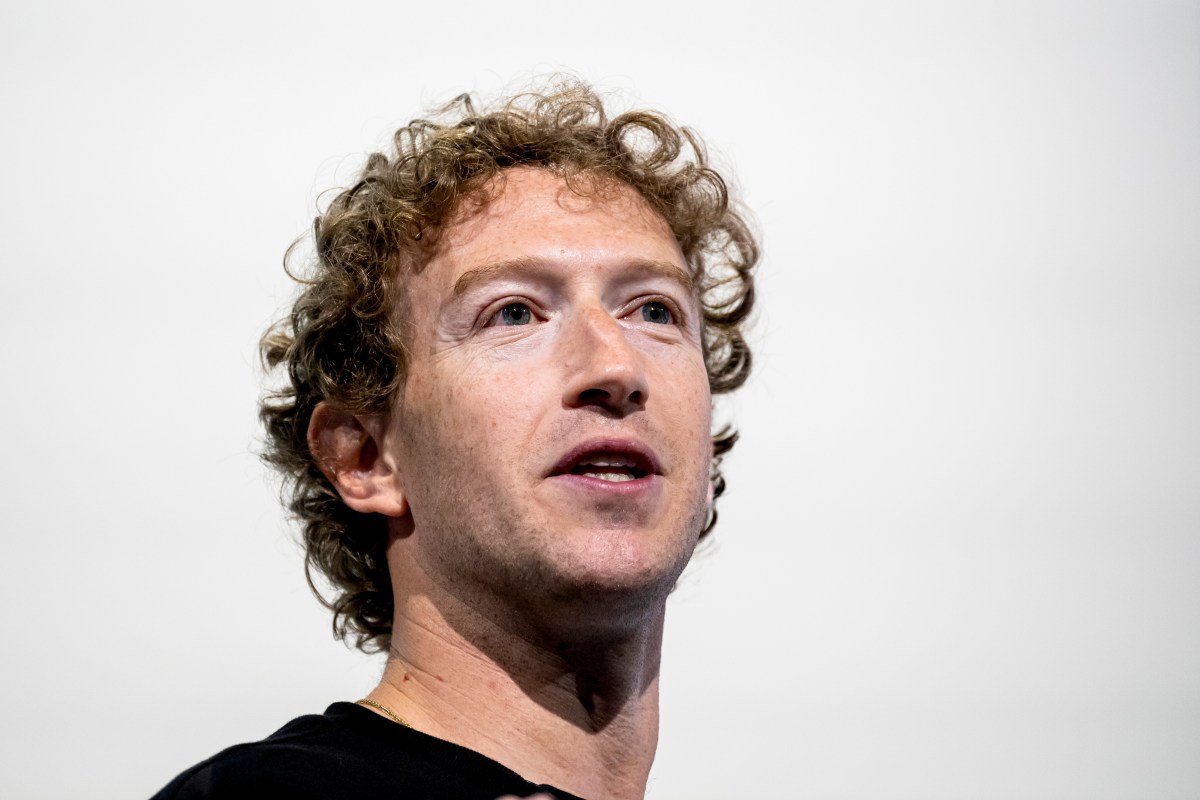Meta CEO Mark Zuckerberg defended his decision to scale back Meta’s content moderation policies in a Friday appearance on Joe Rogan’s podcast. Zuckerberg faced widespread criticism for the decision, including from employees inside his own company.
“Probably depends on who you ask,” said Zuckerberg when asked how Meta’s updates have been received.
The key updates Meta announced this week were that it was ending its independent fact checker program, and replacing it with a community notes program like X has. This means Facebook, Instagram, and Threads will rely more on community members to flag misinformation. The company also said it would increase the thresholds for its automated content filters. This means fewer bad posts on Meta’s platforms will be automatically taken down, but also that fewer good posts will mistakenly be taken down. And Meta didn’t announce this, but its reportedly eliminating its biggest DEI effort.
In a wide-ranging, candid conversation lasting nearly 3 hours, Zuckerberg explained why he’s pivoting his social media platforms, as he puts it, back to their roots of free expression.
“You only start one of these companies if you believe in giving people a voice,” said Meta’s CEO. “The whole point of social media is basically giving people the ability to share what they want. It goes back to our original mission to give people the power to share and make the world more open and connected.”
It’s impossible to ignore the timing of these decisions. Zuckerberg announced these changes just days before the inauguration of Donald Trump. The President-elect previously claimed Meta’s CEO plotted against him in the 2020 election, and reportedly threatened Zuckerberg with prison if he ever did it again.
When it came to Trump, Zuckerberg said he’s quite optimistic about the incoming President because he “just wants America to win.” The CEO noted how important it is to have a government that defends American tech companies abroad, seemingly referencing the scrutiny Meta has faced in the European Union.
However, Zuckerberg claimed the timing of these changes was purely coincidental, and that there’s never a good time for big content moderation changes. In fact, Meta’s CEO said these changes have been a long time coming.
“I was really worried from the beginning about becoming this sort of decider of what is true in the world,” said Zuckerberg. “That’s kind of a crazy position to be in for billions of people using your service.”
In the last decade, Meta’s CEO says people have started to push for ideological based censorship on his platforms. He specifically referred to two events where this came to a head: the 2016 election for US President and the start of the Covid-19 pandemic in 2020.
Zuckerberg said the Biden administration pressured them to take down true information. The Meta CEO said that some of the concerns around vaccine side effects that Meta took down at the time should not have been dismissed as misinformation.
The Meta CEO told Rogan that X and Twitter “just did it better than us” on the topic of content moderation, noting how his platforms would be adopting the community notes feature. Notably, several advertisers left X in recent years due to its content moderation policies, an exodus that X is now challenging in court as collusion.
Rogan and Zuckerberg veered from content moderation to a wide range of topics during Friday’s episode, including jiu-jitsu, AI, and broader shifts in American culture.
Meta’s CEO said he sees a seat change occurring, where people trust government officials and established media less. In their place, social media creators and podcasts hosts, such as Rogan himself, are gaining influence and trust.
This sentiment is reflected in Meta’s recent shifts to news on its platforms, in which the company briefly stopped promoting news or political content altogether. However, Zuckerberg signaled this week that it would phase this political content back in to its promotional algorithms.
At another point, Zuckerberg noted how Western society, and specifically corporate America, has become “emasculated” and “neutered.” He defended the need for a more masculine presence in the country and its businesses.
Several times throughout the podcast, Zuckerberg suggested he has deferred to the media too much in the last 10 years, and taken on blame for things out of his control. This isn’t the first time Zuckerberg has said Meta would be taking less responsibility for everything bad on its platform moving forward. However, he appeared more candid and emboldened on the topic than ever before in Friday’s conversation.
“We just got to this point where there were things you just couldn’t say [on our platforms] which were mainstream discourse,” said Zuckerberg, referencing how Meta has silenced conservative voices.
The Meta CEO brought up how Trump’s nominee for defense secretary, Pete Hegseth, has repeatedly stated that women shouldn’t be allowed to serve in combat roles. Zuckerberg said that under Meta’s previous content moderation rules, these comments wouldn’t be allowed because they exclude a protected category of people. Under Meta’s new policies, these comments will be okay, said Zuckerberg.
“If it’s okay to say on the floor of Congress, you should probably be able to debate it on social media,” he said.
On Dana White, Meta’s CEO said he added the UFC President to his board of directors because of his entrepreneurial leadership, and to have more people with a “strong backbone” at his company.
“We have a lot of governments and folks around the world putting a lot of pressure on our company and we need some strong people who are going to advise us on how to handle these situations,” said Zuckerberg on White.

